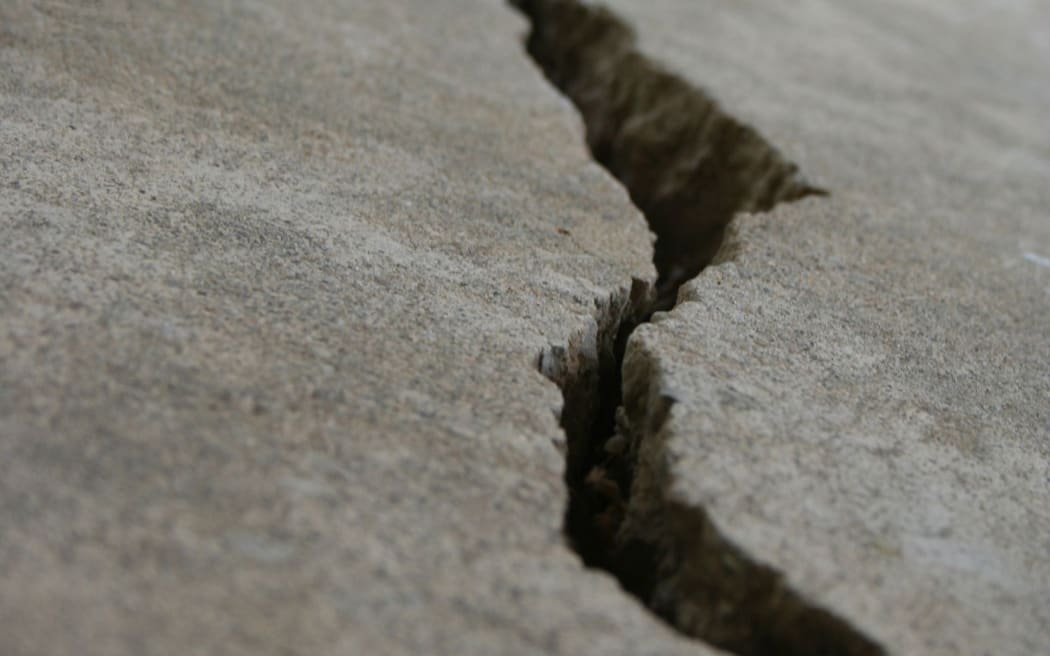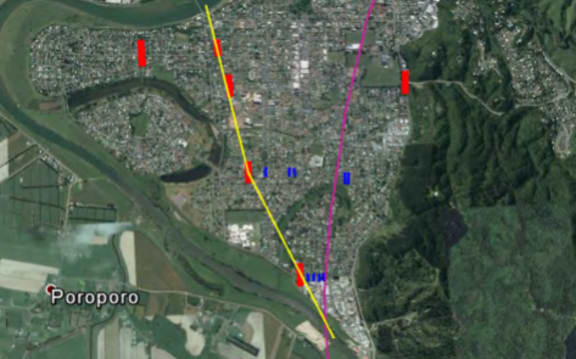
Photo: 123RF
Whakatāne hospital's acute mental health facility is under threat from newly identified earthquake hazards, and the unravelling of government plans.
Board minutes reveal that Te Whatu Ora has been given new information about the location of the earthquake fault line in the town, meaning the unit needs urgent work to keep it open.
It "wants work done to mitigate the current risk to patients", a January committee report said.
It recommended the board undertake "urgent works", but blanked out the suggested budget for the works.
RNZ asked the health agency on Monday if it had done the work, but it has not said.
Instead, it issued a statement on Monday that provided the generic assurance that "any seismic risks to health infrastructure are regularly assessed and updated".
The risks at Whakatāne included "structural" ones, according to the January minutes, but exactly what those were remains unclear.
The minutes said the GNS report "provides revised information regarding the Whakatāne fault line location".
"Management stated ... that there are risks with the Whakatāne site, and its ability to remain open may be at risk if not addressed."

A map of Whakatāne shows the old identified path of the fault in purple, and the new more likely path of it, in yellow, identified in 2016: It has now been pinned down further. Photo: Supplied / GNS
GNS has known since at least 2016 that the fault ran near the hospital but not exactly where.
"Using high-resolution topography (LiDAR) data, existing seismic reflection data and the interpretation of evidence from historic aerial photos, GNS Science has [determined] the precise location of the fault," it told RNZ on Tuesday.
The Whakatāne fault has an interval between shakes of less than 20,000 years which puts it in the most active category.
Building rules constrain how close structures can be put to active faults.
Where any questions of a fault's location remained, "a range of possible fault locations are interpreted to determine the fault rupture zone. A fault avoidance zone is then described", GNS said.
Health NZ said the main hospital building was not affected.
Substandard business case
The fault hazard was not only a problem for the mental health facility.
A whole new unit was meant to be built, as promised by the government in 2020, but not only does the new seismic information throw its location into doubt, the business case for it has proved to be substandard and was having to be done again.
"It's vital that Te Whatu Ora builds credibility with stakeholders so that we can manage capital projects effectively," board minutes from July 2022 said.
"The reputational and delivery risks are too high to proceed."
The business case lacked details, it said.
"It remains unclear what regional assessment of needs has been undertaken to give the committee and [Te Whatu Ora] Board assurance that the project will meet community need."
RNZ asked Te Whatu Ora who, if anyone, was being held accountable for the un-usable business case.
It responded that "the business case is now being revisited and updated", to go to the health minister in the second half of 2023.
RNZ spoke to three local mental health community providers yesterday, none of which were aware of the strife the plans for a new unit were in.
General manager of Pou Whakaro, a mental health service provider in Whakatāne, Claire Pye said a new unit was "definitely needed" as the existing facility was too old.
A third hurdle to the rebuild has also emerged - funding.
The July minutes said there was not enough money for both Whakatāne and Tauranga to get a new acute mental health facility - both were promised in 2020 - so a choice had to be made.
The capital infrastructure committee decided to look at the projects side-by-side "to assess the trade-offs because there is not the money available within the envelope to do both projects based on current information".
The process would then go "to the minister for a final decision".
By January this year, Tauranga was the preferred choice, the papers showed.
Health Minister Ayesha Verrall's office said on Monday that "ministers have not made any final decisions on either business case".
"Ministers are expecting to receive these business cases this year."
Verrall was asked about the seismic risks to patients but made no comment.
A third mental health rebuild promised as part of the much-trumpeted injection of $300 million into health infrastructure funding in 2020, at MidCentral, was also in major strife, so late and over budget it has alarmed the families of patients.
GNS issued a new national seismic hazard model late last year that raised the shaking risks for many areas.







